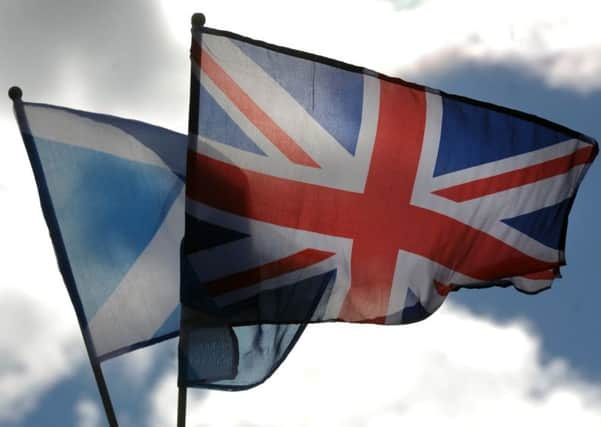Kieran German: The UK is past its ‘use-by’ date


Scotland has always occupied a dynamic place in these islands. Political independence would be a logical next step for Scotland, as union within Britain has continually been renegotiated over the course of the past five centuries at least.
One of the most sustained criticisms of the idea of Scottish independence is that Scots do not know what they are letting themselves in for. Notwithstanding the fact that it is David Cameron (not the Scottish Government) who has ruled out pre-negotiating the terms of independence, in historic terms this argument has applied to previous unions. In fact, Scotland has never been so well prepared for independence as it is today.
Advertisement
Hide AdAdvertisement
Hide AdScotland has been doing and undoing union since at least the 1290 treaty of Birgham, rejecting one form of union in 1543, yet seeking a federal-style arrangement in 1702.
In 1603 King James intended to take the union further than the union of the crowns but found it impossible for the Scots and the English to overcome mutual distrust. Negotiations to unite the parliaments had failed within a decade, yet the regal union has persisted to this day.
Anglo-centric rule through the 17th century repeatedly riled the Scots, and Scots Covenanters rose in arms against Charles I. The Scots and the English reached an international concordat, as equal parties, in the form of the Solemn League and Covenant. But the occupation of Scotland by Cromwellian troops from 1651 imposed a short-lived Union. In 1660 the newly restored monarch, Charles II, dissolved Cromwell’s version of a unified Britain. Even London governments have been willing to dispense with the idea of union.
Following King James VII’s deposition in 1690, and for decades after the 1707 Union, James’ supporters, the Jacobites, would fight for a British monarchy and Scottish nationhood under the same banner. The Jacobites etched their broadswords with slogans like ‘No Union!’, ‘Prosperity to Scotland’ and ‘God Bless King James’.
1707 and the Act of Union
Throughout the 17th century the Scots resisted overtures to agree to a union of incorporation, so it is striking that in 1707 they overlooked other options and agreed to exactly that. Their decision can be put down to a cocktail of political ineptitude in Scotland and bribery, economic threats and commercial promises from England. Yet to argue that the Union was the last recourse of an impoverished nation is quite wrong.
Considerable earnings from outgoing investment to Scandinavia and Germany, buoyant French trade, as well as shipping, tramp trading and inward investment in infrastructure from the Netherlands all point towards a viable independent economy. And, pertinently to current considerations over currency, Scotland so successfully employed an informal currency union by weighting the Scots pound to sterling, it facilitated an excellent economic transition in 1707.
Yet a bill in the House of Lords in 1713 to dissolve the Union, supported by many Scots lords who had earlier voted for the treaty, failed by only four votes. If the basic objective was to secure peace and stability for the island of Great Britain, then there can be little argument that the 1707 Union failed in the short to medium term. Three military risings followed, as did rioting over Westminster’s taxes. The automatic association of the union with stability and certainty for Scotland is simply not borne out by history.
‘Past its ‘use-by’ date’
Advertisement
Hide AdAdvertisement
Hide AdThe very fact that the Union is debated by each generation shows that one size does not fit all. Since 1979 Scotland’s place in the UK has twice been put to a referendum, and we now approach a third ballot. Our predecessors routinely altered the way Scotland formed part of Britain, responding to the needs of the day. The truth is the Union in its current form is well past its ‘use-by’ date. History shows that the Scots can flourish in independence, while still contributing to the family of British nations.
• Dr Kieran German teaches history at Strathclyde University, and is a member of Academics for Yes